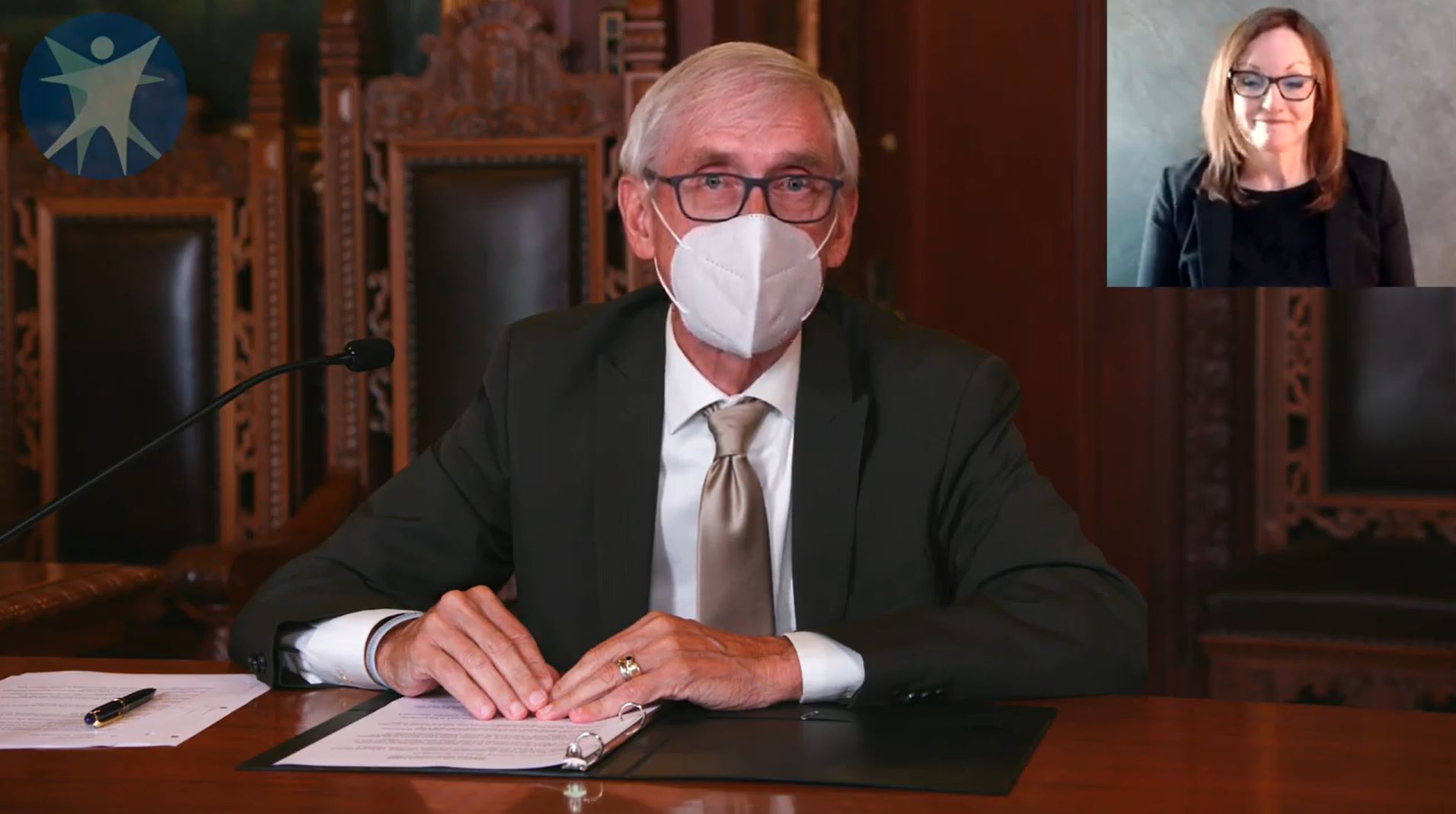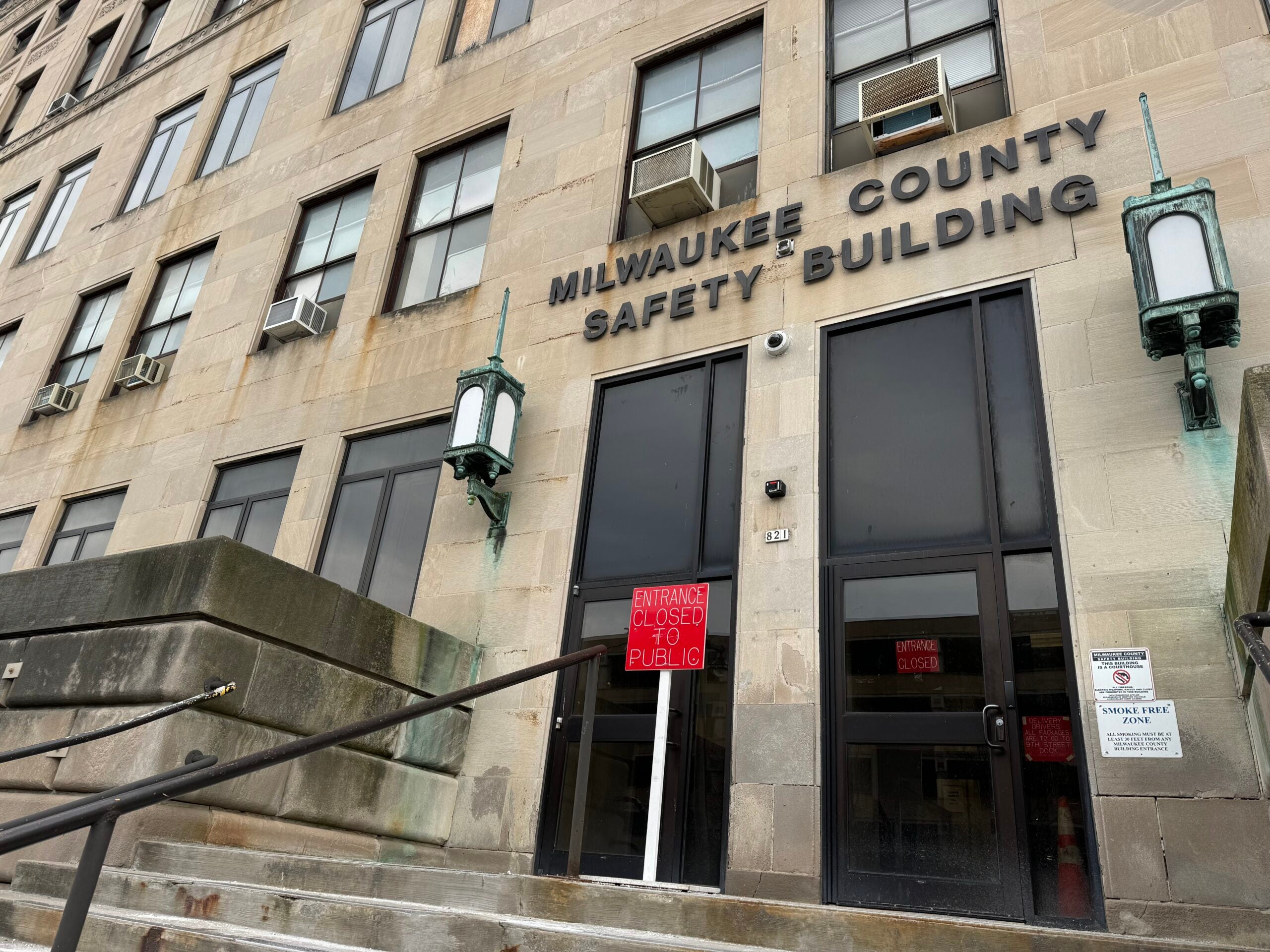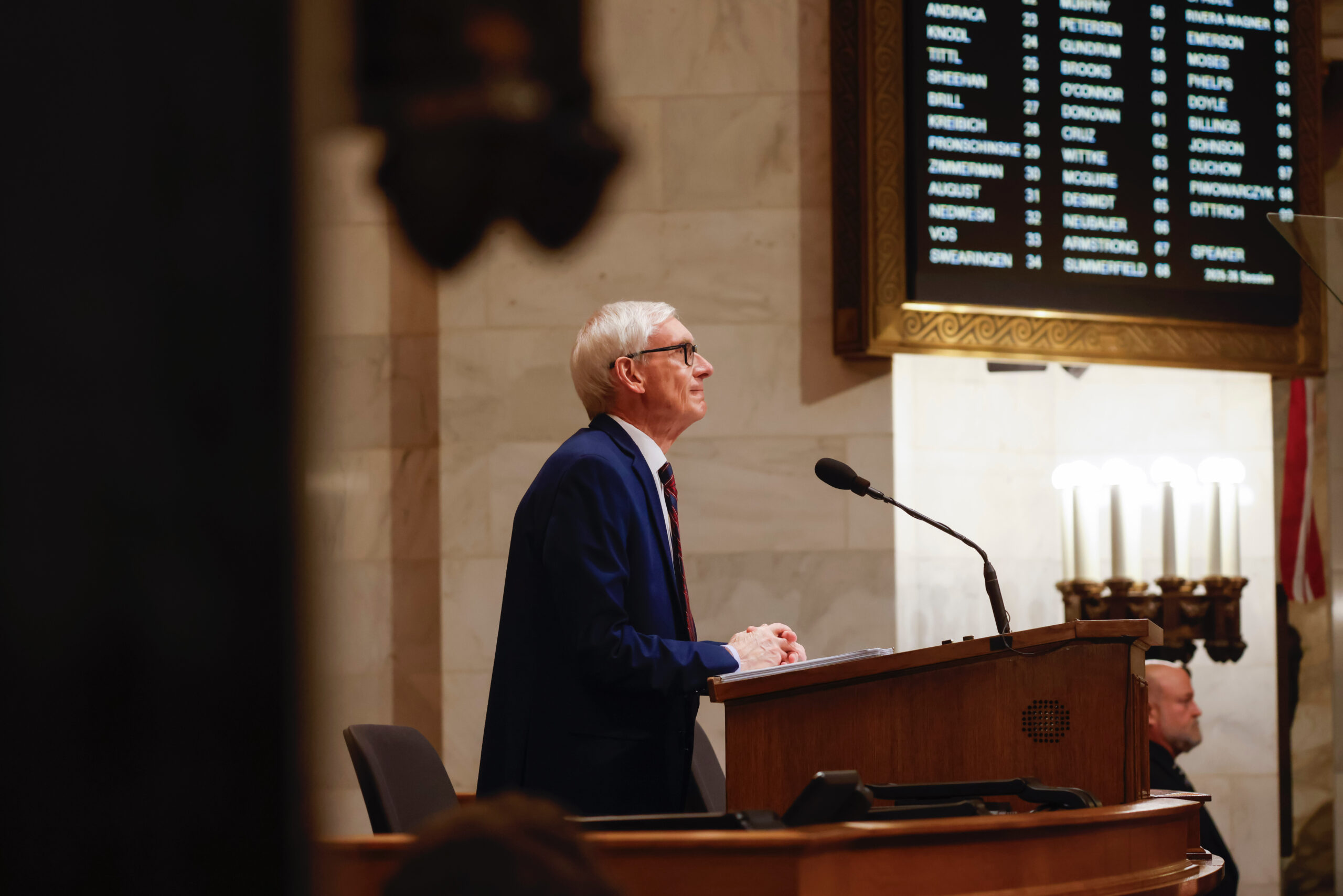Gov. Tony Evers said Wednesday he will declare another public health emergency for Wisconsin in response to the ongoing coronavirus pandemic and extend the statewide mask mandate until at least early next year.
Evers’ move came just days after the Wisconsin Supreme Court heard arguments in a lawsuit that aims to strike down the current mask mandate and prevent him from issuing similar orders in the future.
It also came on a day when Wisconsin again broke its single-day record for COVID-19 cases, leaving hospitals in some of parts of the state near their capacity to treat new patients.
Stay informed on the latest news
Sign up for WPR’s email newsletter.
“It’s clear based on where we’re headed, we cannot afford to stop or have a gap in some of the only mitigation efforts we still have in place,” Evers said during a media call Wednesday.
Evers has declared three public health emergencies since the pandemic began. This next one will be his fourth.
He’s relied on a state law that gives governors the power to order 60-day public health emergencies, which is different than the law his administration used earlier this year to issue its “Safer at Home” orders.
Most recently, the governor has used his emergency orders to issue and reissue Wisconsin’s mask mandate. His upcoming order would extend that mandate until at least January.
“We’ve heard promising reports of vaccines on the horizon in the new year, but we need to buckle down and get through this together until then,” Evers said.
Evers’ current emergency order is being challenged by Jeré Fabick, a GOP donor who is a board member and policy advisor for the conservative Heartland Institute. Fabick’s lawsuit contends Evers exceeded his authority by issuing multiple emergency orders for the same pandemic.
Evers has argued that he’s issued new orders because the pandemic has changed. When he issued his previous order on Sept. 22, the seven-day average for new COVID-19 cases was about 1,800. The current seven-day average is about 6,500 cases.
That spike in cases has happened while Wisconsin’s mask mandate has been in place. Wednesday, the governor acknowledged that wearing a mask is not as widely accepted in Wisconsin as he’d like it to be. Still, he said he thought they were effective.
“I believe these orders do make a difference,” the governor said. “We see more masking up in workplaces and retail places.”
While previous emergency orders from the governor have been met with lawsuits, that may not be the case with his current order. That’s because the Supreme Court could issue a decision in the latest lawsuit any day now.
“I think that will provide clarity on the path forward rather than a new lawsuit,” said Ryan Nilsestuen, chief legal counsel for the governor.
Evers’ remarks Wednesday came a day after he unveiled his latest COVID-19 legislation, a bill that would spend roughly $541 million on COVID-19 testing and tax relief.
While Republicans have indicated that’s more than the state can afford, Evers said the state would need to pay if the federal government doesn’t extend its funding.
“It has to come from some place if the federal government doesn’t step up,” Evers said.
Evers said he agreed with the call for expanded testing by Assembly Speaker Robin Vos, R-Rochester.
“We agree 100 percent on that,” Evers said. “But that can’t be the only thing. Testing is not prevention.”
Vos and other Republicans have argued that Evers can’t unilaterally respond to the pandemic, and should issue emergency orders through the Legislature’s emergency rulemaking process instead.
Asked why he did not include a mask mandate as part of his latest COVID-19 bill, the governor said Republicans had already indicated they won’t support state mitigation efforts.
“So that stops that in its tracks, so why start going down a 30 or 40 day ordeal to have people say no?” Evers said.
Wisconsin Public Radio, © Copyright 2025, Board of Regents of the University of Wisconsin System and Wisconsin Educational Communications Board.




